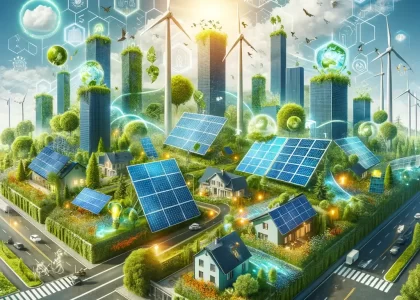I found this article describing the latest development in renewable energy, which I’d like to share.
It explored the concept of utilizing solar fences not only in commercial and industrial settings but also in residential areas and agriculture. The idea of incorporating energy generation into a functional fence seemed like a brilliant alternative for self-sufficiency and optimizing electricity consumption. I couldn’t help but delve deeper into this innovative approach. The article highlighted the unique advantages of solar fences, emphasizing their dual purpose of providing enclosure and generating electricity. This combination presents an exciting opportunity to maximize the use of available space and resources. Whether installed around a private residence, on a commercial property, or in an agricultural setting, solar fences offer a compelling solution for self-generation of electricity.
One aspect that particularly intrigued me was the potential for solar fences to complement existing renewable energy systems, such as rooftop solar panels or solar carports. By integrating a solar fence, individuals and businesses can further optimize their energy generation and consumption.
This adaptability and flexibility make solar fences a valuable addition to the renewable energy landscape.
A key advantage of solar fences lies in their ability to cater to individual consumption profiles. Depending on the orientation of the fence, the generation profiles can vary significantly. This opens up opportunities for customization and optimization based on the specific needs of the customer. The ability to align energy generation with consumption patterns is a valuable feature, allowing for enhanced self-consumption optimization and potentially reducing reliance on the grid.
As I concluded my exploration of the article, I couldn’t help but appreciate the ingenuity and potential of solar fences. They offer a unique opportunity to blend practicality, functionality, and sustainability. While challenges and considerations exist, the concept holds promise and could pave the way for more innovative solutions in the realm of renewable energy.





